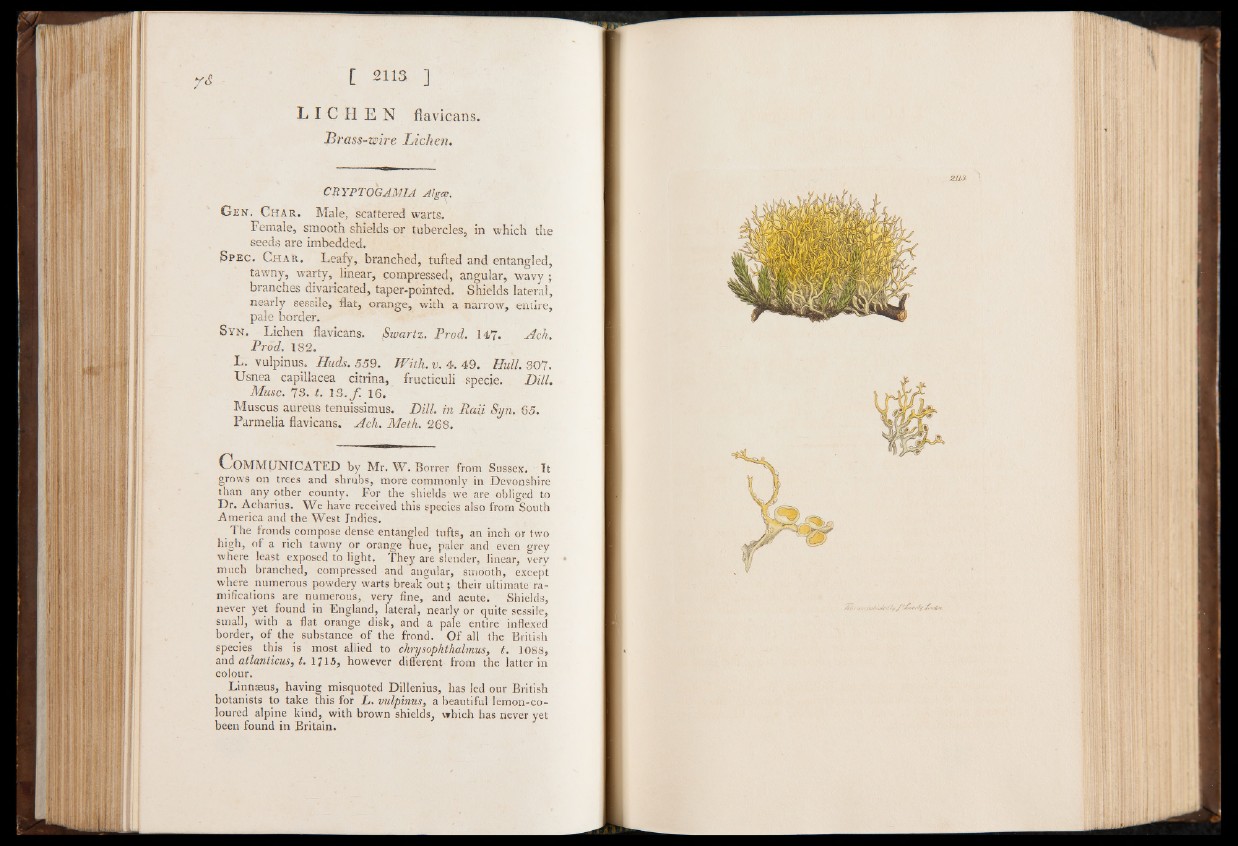
[ 2 1 13 ]
L I C H E N flavicans.
Brass-wire Lichen.
/Y& -
CR YPT0GAM1A At6 se e\ .
Gen. Char. Male, scattered warts.
Female, smooth shields or tubercles, in which the
seeds are imbedded.
$pec. Char. Leafy, branched, tufted and entangled,
tawny, warty, linear, compressed, angular, wavy ;
branches divaricated, taper-pointed. Shields lateral,
nearly sessile, flat, orange, with a narrow, entire,
pale border.
Syn. Lichen flavicans. Swartz. Prod. 147. A ch .
Prod. 182.
L. vulpinus. Huds. 559. W ith. v. 4. 49. Hull. 307.
Usnea capillacea citrina, fructiculi specie. D ill.
Muse. 73. t. 13. f 16.
Muscus aureus tenuissimus. D ill, in Ra(i Syn. 65.
Parmelia flavicans. A ch . Meth. 268.
C o m m u n ic a t e d by Mr. W. Borrer from Sussex. It
grows on trees and shrubs, more commonly in Devonshire
than any other county. For the shields we are o b l i g e d to
Dr. Acharius. We have received this species also from South
America and the West Indies.
The fronds compose dense entangled tufts, an inch or two
high, of a rich tawny or orange hue, paler and even grey
where least exposed to light. They are slender, linear, very
much branched, compressed and angular, smooth, except
where numerous powdery warts break out; their ultimate ramifications
are numerous, very fine, and acute. Shields,
never yet found in England, lateral, nearly or quite sessile,
small, with a flat orange disk, and a pale entire inflexed
border, of the substance of the frond. Of all the British
species this is most allied to chrysophthalmus, t. 1088,
and atlanticus, t. 1715, however different from the latter in
colour.
Linnaeus, having misquoted Dillenius, has led our British
botanists to take this for L . vulpinus, a beautiful lemon-coloured
alpine kind, with brown shields, which has never yet
been found in Britain.